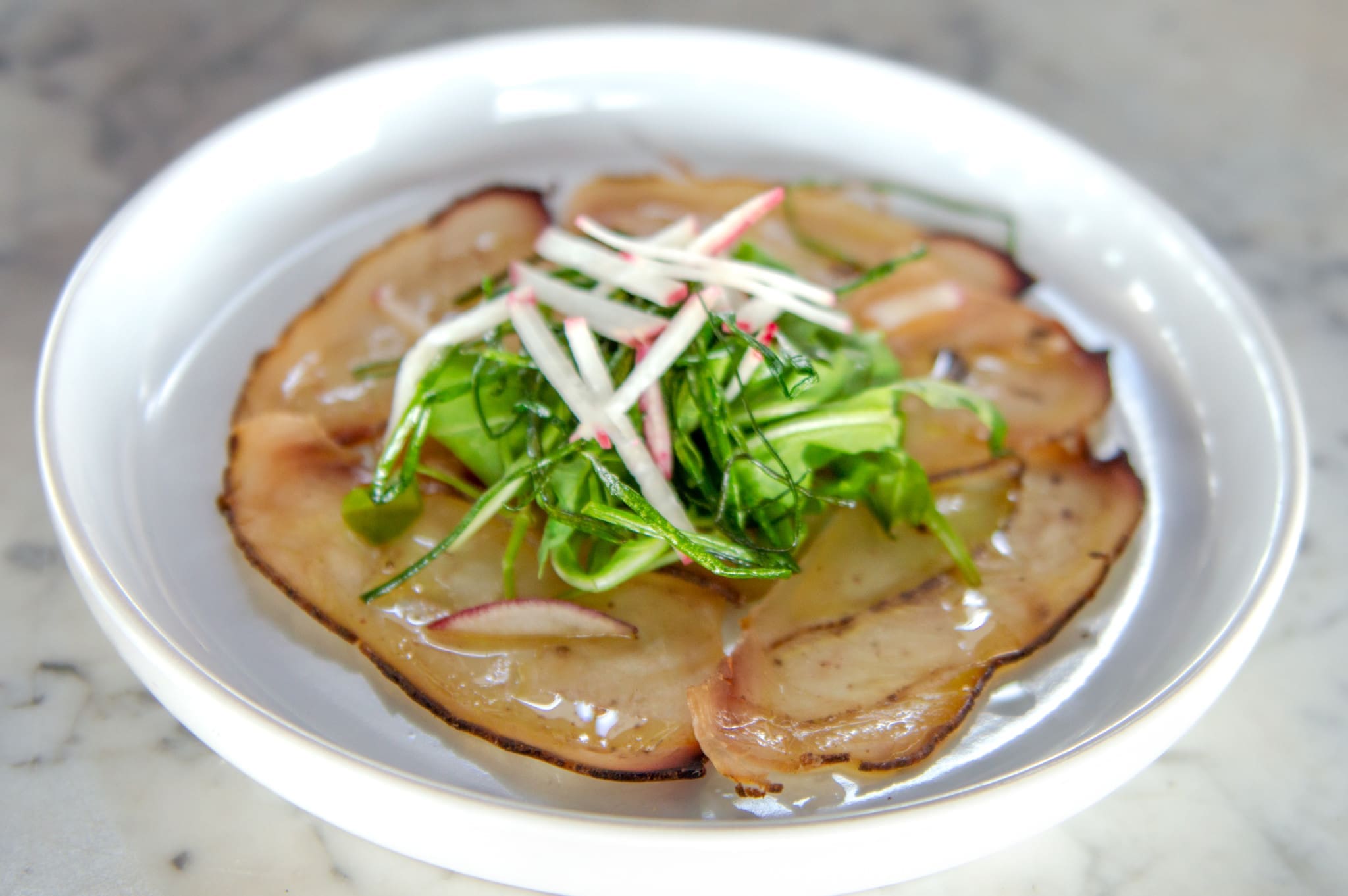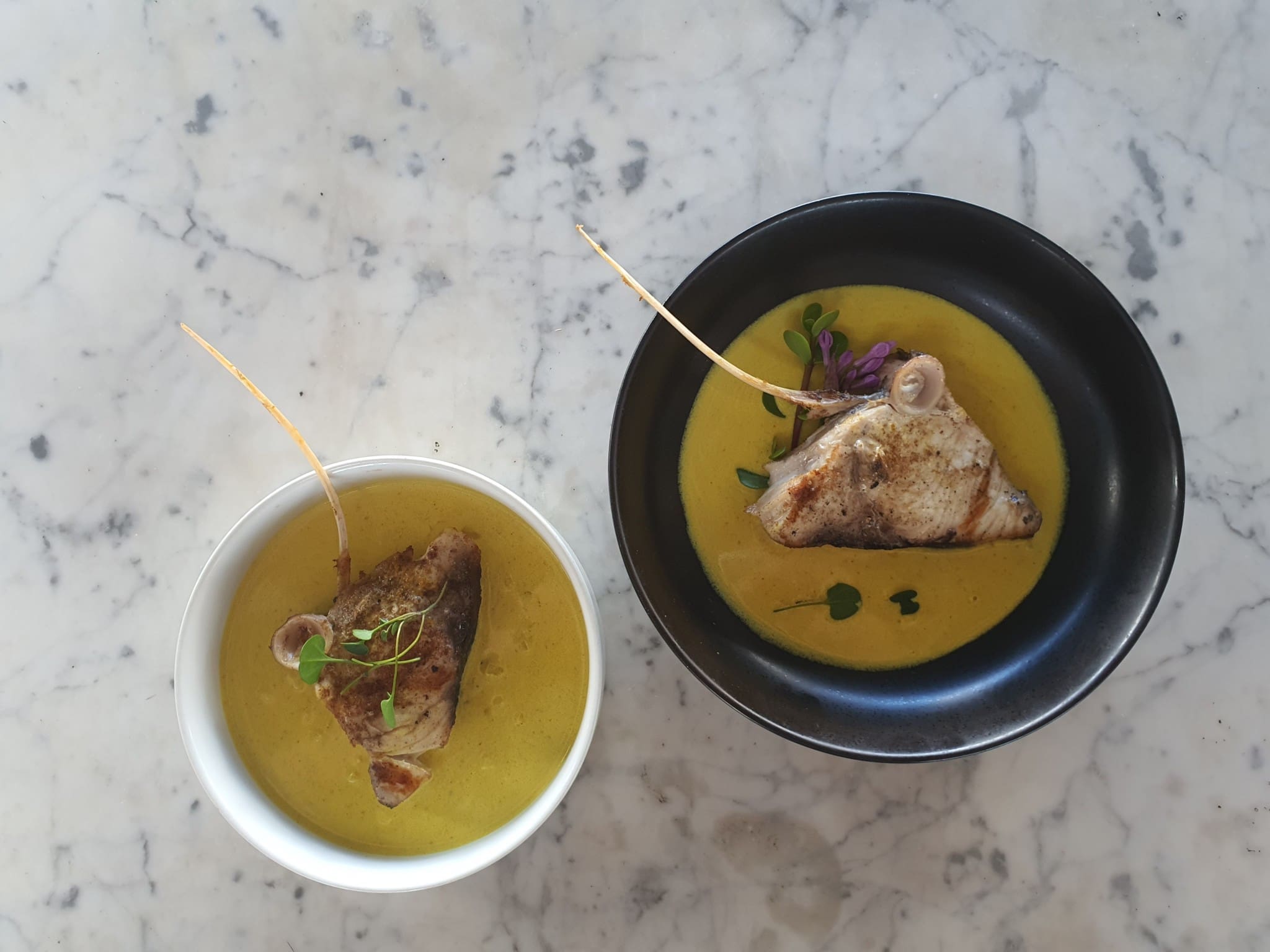KURT HILL of Cape Fish, purveyor, as you’d expect, of quality fresh fish – and now dry aged fish too, tells us more.
Dry aged fish? Why? “Well,” says Kurt, “it’s cleaner tasting, for one thing. It’s also more tender and just as delicious – or more so – than fresh fish, but without that fishy smell.”
So it’s dry – like biltong or that West Coast delicacy, bokkoms, but without the strong aroma?
“No!” gasps the Cape Fish fishmonger. “It’s incredibly juicy and tender with a mouth-watering flavour. You can’t even compare it to fresh fish, and certainly not to bokkoms!”
OK. So you mentioned “cleaner”? Kurt explains that dry aging removes the moisture from the fish. Less moisture in the tissues lead to no excess juices when you cook the fish or eat it raw. “It’s actually so clean, it makes excellent sashimi and nigiri,” he says.
Kurt adds that dry ageing is an art rather than a science and can include curing and smoking. “There are no formulae – it requires patience and a controlled environment and can take anywhere from a few days to weeks. It depends on each individual fish.”

Dry ageing also extends a fish’s prime period from a few days to 20 or more. The process has enabled the creation of new products that may make pescatarians weep with joy: think swordfish bacon, marlin carpaccio, salmon sausages…
It can of course also be prepared exactly as you would a fresh fish (fried, steamed, braaied – you name it) and because there’s far less moisture in the fish, it cooks more evenly with an outside crisped to perfection. (OK, not if you’re steaming it. That wouldn’t happen.)
Dry aged fish also takes on added flavour profiles really well, so it’s astonishingly good at making the simplest flavours explode. Kurt prefers to pan-fry with a knob of butter and just a pinch of salt and pepper: “I think that’s the best way to appreciate the rich and clean flavour that has developed through the meat as it ages.”
Kyle Nold and Kurt Hill started Cape Fish in April 2012, beginning with late night and early morning delivery runs to restaurants. “At that point, Cape Fish had a beat-up bakkie and a tuna boat, but within months we were having to buy from other fishing vessels to keep up with sales,” says Kurt. Over the years that followed, Kyle and Kurt expanded into quality, super-frozen tuna to bridge the gaps as they were oversubscribed for fresh fish. In 2016 they opened their premises in Paarden Eiland, where Cape Fish still is today.

The company focuses on the supply of sustainably caught and sourced seafood, specialising in the handling of fresh large pelagics such as yellowfin tuna. The business owns a processing facility with an onsite blast-freezing, holding freezer, chiller, processing rooms, dry-ager machines and has a factory floor so clean you could eat the tuna off it.
Salsify at the Roundhouse, The Pot Luck Club, Obi and Orca Cafe are a few of the well-known Cape restaurants that have dry aged fish on their menus. “But you have to try it at home,” says Kurt. “We sell it over the counter and online as part of our Cape Fish Butcher line. Pop into our retail store where we promise our customers a consistent and trustworthy source of seafood that will surpass all expectations.”
Cape Fish is a local South African business bringing pristine quality and ethically sourced seafood products from South Africa and around the globe.
